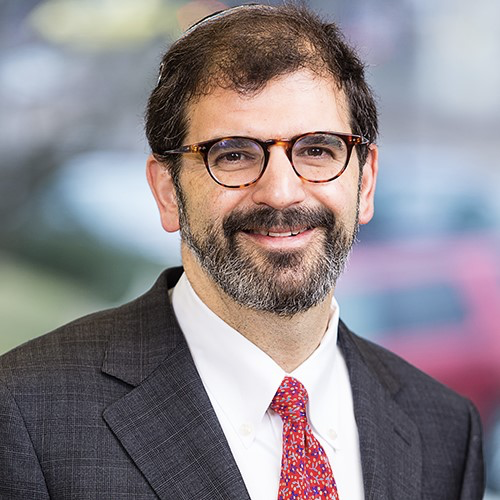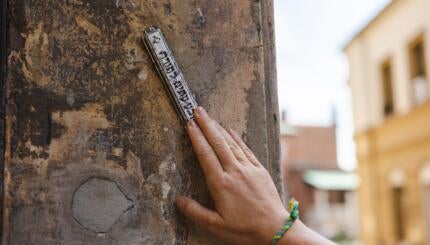Question: I noticed that sometimes two Torah portions are read on a specific Shabbat. Why is this so?
— Alan G.
Dear Alan,
Great question! The answer hinges on some of the peculiarities of the Jewish calendar.
The entirety of the Torah is read during each Jewish calendar year, beginning on the first Shabbat after Simchat Torah. There are a total of 54 portions in the Torah, and the Jewish year is lunar, so it only has 50 or 51 Shabbatot. That means in an average year, three or four portions are going to have to be doubled to fit them all in.
With your help, My Jewish Learning can provide endless opportunities for learning, connection and discovery.
But that’s just the beginning. When major holidays fall on Shabbat, the normal Torah portion is preempted in favor of a special holiday reading. This always happens on Sukkot and Passover, which are eight days long (seven in Israel), so at least one Shabbat reading is going to be preempted each year for each of those holidays. But the number may be higher in a given year depending on which days those holidays and others fall out. Even in a Jewish leap year, when there might be as many as 55 Shabbatot in the year, some of the holidays will preempt the regular readings, necessitating that at least some are read as double portions, though fewer than in regular years.
Another aspect to your question revolves around the fact that the combinations of portions are not random. There are seven pairs of portions that can be doubled when the calendar requires it. Some of these combinations make thematic sense: Tazria and Metzora are sometimes combined because both discuss leprosy and impurities of the skin or clothing or a house. Netzavim and Vayelech are joined because they are the two shortest portions in the Torah. But there are some mega portions that are regularly brought together just to fit them into the year, such as Vayekhel and Pekudei.
One final wrinkle: While the portions of the week do not necessarily calibrate with the Jewish holidays, some are doubled up so that certain portions are read before a particular holiday. Matot and and Masei are doubled up some years to ensure that the portion that comes after, Devarim, is always read prior to Tisha B’Av. (There is a verse in Devarim that starts with the word eicha, the book read on Tisha B’Av.)
So in short, the ancient rabbis did lots of work to make sure everything fit together properly.
Rabbi Asher Lopatin

Rabbi Asher Lopatin is the spiritual leader of Kehillat Etz Chaim in Detroit, Michigan.



